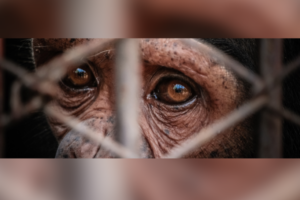News
posted in
12
Sep
2024
Demand Sanctuary for Alamogordo Chimps

posted in
13
Aug
2024
Chimpanzees converse like humans, new study finds

posted in
31
Jul
2024
Peter Singer announces support for the Great Apes Law in Spain

posted in
08
Jul
2024
Africa: Snare removal program supports chimpanzee conservation

posted in
24
Jun
2024
Chimpanzees ‘self-medicate’ with healing plants

posted in
16
Jun
2024
Book review – “Trauma in Sentient Beings: Nature, Nurture and Nim” ( by Antonina Anna Scarná and Robert Ingersoll – 2024)

posted in
14
Jun
2024
PGS Spain: New Book – “Non Human Hominids”

posted in
16
May
2024
United States: 26 chimpanzees still await transfer to sanctuary trapped in laboratory

posted in
24
Apr
2024
Katai and Sansão: orangutans in captivity in Brazil

Residents' Stories Katai
Read more
posted in
15
Apr
2024
The price of modernity can be high for our evolutionary relatives

posted in
03
Apr
2024
Children snatched away by the circus

Residents' Stories Lucy
Read more
posted in
26
Mar
2024
The Brazilian sanctuary where Toti, the sad-looking chimpanzee, can be transferred

posted in
10
Mar
2024
Elena Liberatori, the judge who made history with the case of orangutan Sandra

posted in
17
Feb
2024
In memory of Steven M. Wise (1950 – 2024)

posted in
22
Dec
2023
Interview: Biruté Mary Galdikas, the great forgotten one. A lifetime dedicated to the defense of orangutans and their habitat


 Español
Español
 Português
Português
